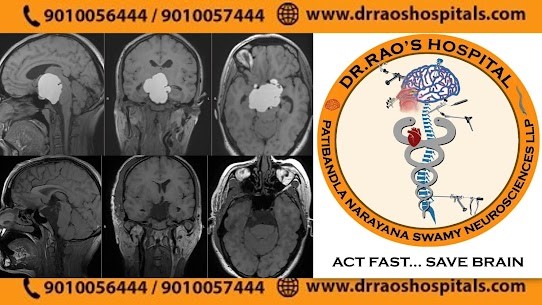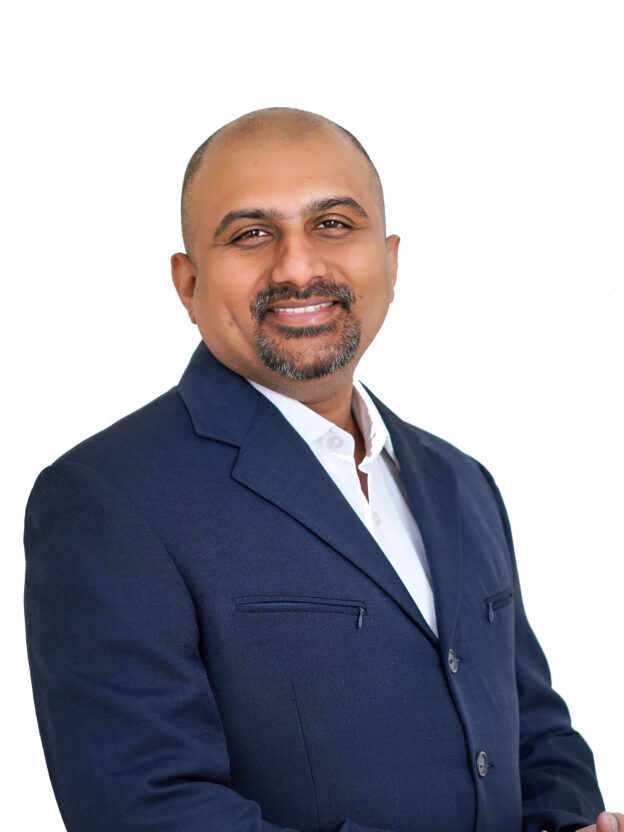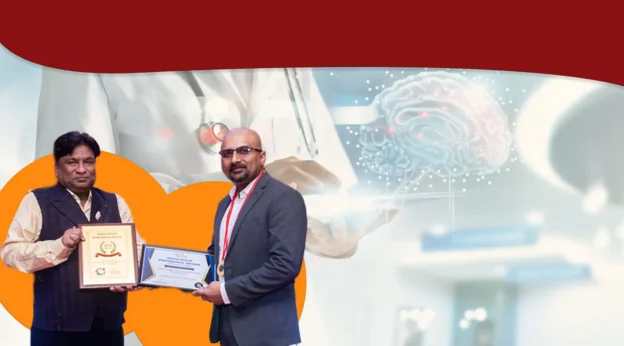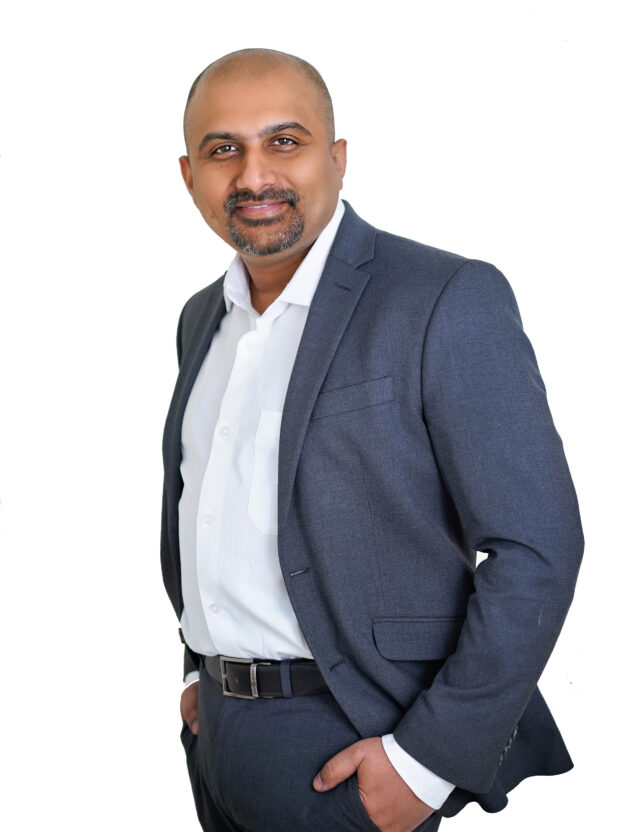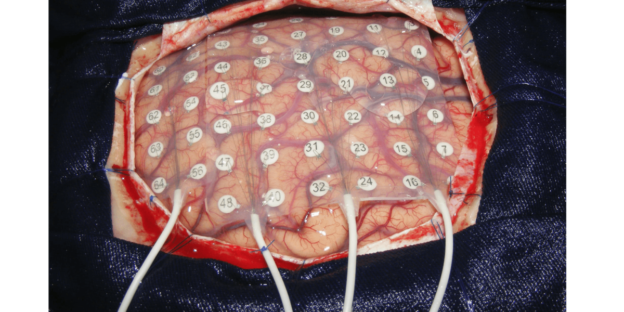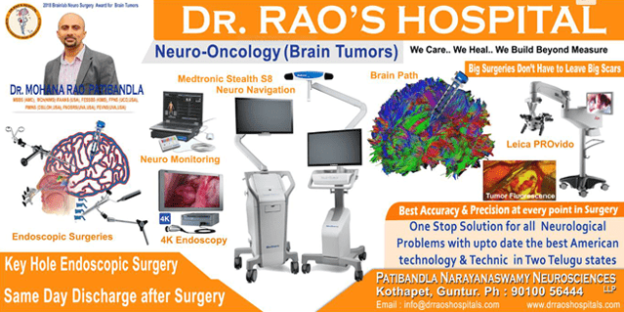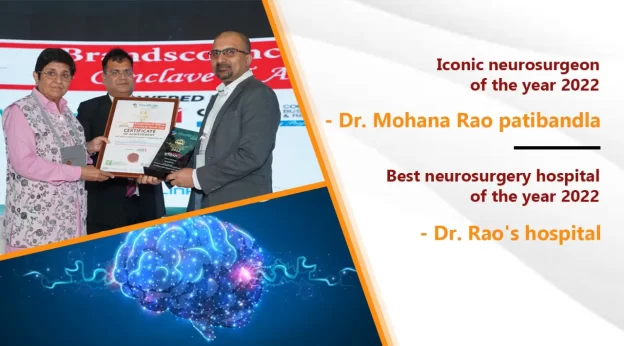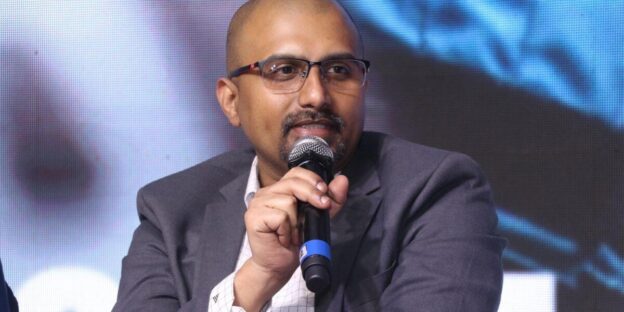Best Neuro & Spine Care: Top Doctors at Dr. Rao’s Hospital
Top 10 Neurologists
When it comes to neurological care, finding the right specialist is critical. The top 10 neurologists in India are highly sought after for their expertise in diagnosing and treating complex neurological conditions. These doctors are often found in prestigious hospitals and institutes nationwide, bringing knowledge and experience to every case. Patients searching for the best care usually look to these top neurologists known for their innovative approaches and successful outcomes. Dr. Mohana Rao Patibandla at Dr. Rao’s Hospital, Guntur, is a shining example of such expertise, with an impressive track record in treating various neurological disorders. According to The Times of India coverage.
Neuro and Spine Institute
A neuro and spine institute is a specialized center dedicated to diagnosing, treating, and rehabilitating neurological and spinal disorders. These institutes are equipped with state-of-the-art technology and staffed by multidisciplinary teams, including neurologists, neurosurgeons, spine surgeons, and rehabilitation specialists. Dr. Rao’s Hospital in Guntur is a leading institute renowned for its cutting-edge treatments in neurological and spine care. The hospital excels in performing complex surgeries with minimally invasive techniques, which reduce recovery time and improve patient outcomes.
Best Pediatric Neurosurgeon in India
Pediatric neurosurgery requires unique skills and a deep understanding of the developing nervous system. The best pediatric neurosurgeons in India are adept at treating congenital anomalies, tumors, and other neurological conditions in children. These surgeons focus on the surgical aspects and work closely with pediatricians, neurologists, and rehabilitation experts to ensure comprehensive care for young patients. Dr. Rao’s Hospital in Guntur is home to some of the best pediatric neurosurgeons in the country, offering advanced treatments tailored to the delicate needs of children. In a recent deccanherald
Top Rated Spine Doctors
When dealing with spine-related issues, it’s crucial to consult with the top-rated spine doctors. These specialists are known for their expertise in diagnosing and treating conditions such as herniated discs, spinal stenosis, scoliosis, and spinal cord injuries. At Dr. Rao’s Hospital, patients have access to some of the most highly rated spine doctors in India. The hospital’s spine care program emphasizes minimally invasive spine surgery, which allows for faster recovery times and less post-operative discomfort, making it a preferred choice for patients.
Back Hospital
A back hospital focuses on the comprehensive care of back and spine conditions. These hospitals have advanced diagnostic tools and surgical facilities that treat everything from chronic back pain to complex spinal deformities. Dr. Rao’s Hospital is recognized as one of the best back hospitals in India, offering a range of services from conservative treatments like physical therapy to advanced surgical interventions such as spinal fusion and minimally invasive spine surgery.
Near Neurosurgeon
Finding a near neurosurgeon who is both highly qualified and conveniently located can be challenging. Patients in and around Guntur, Andhra Pradesh, are fortunate to have access to Dr. Rao’s Hospital, which has some of the most knowledgeable neurosurgeons. Whether you are dealing with a brain tumor, spinal cord injury, or chronic neurological condition, Dr. Rao’s team is equipped to provide world-class care close to home.
Best Neuro Care
For patients seeking the best neuro care, choosing a hospital with a proven track record of success in treating neurological conditions is essential. Dr. Rao’s Hospital is a leader in this field, offering a wide range of services, from initial diagnosis to complex surgeries and long-term rehabilitation. The hospital’s neurocare team is known for its multidisciplinary approach, ensuring patients receive personalized treatment tailored to their needs.
Brain Spine Surgery
Brain spine surgery is a complex and highly specialized field requiring the expertise of skilled neurosurgeons. Whether removing a brain tumor, repairing a spinal cord injury, or treating degenerative spinal conditions, the surgeons at Dr. Rao’s Hospital are among the best in the country. The hospital is particularly known for its use of minimally invasive techniques, which reduce the risk of complications and shorten patients’ recovery times.
Center for Neurosurgical & Spine Care
The Center for Neurosurgical & Spine Care at Dr. Rao’s Hospital is a premier facility offering comprehensive care for patients with neurological and spine disorders. The center has the newest technology and a staff of experts who are industry leaders in their fields. Patients receive the highest standard of care from initial diagnosis through surgery and rehabilitation. The center is also known for its expertise in minimally invasive neurosurgery, which has revolutionized the treatment of many conditions by minimizing trauma and speeding up recovery.
Nerves Hospital
A nerves hospital treats conditions affecting the nervous system, including the brain, spinal cord, and peripheral nerves. Dr. Rao’s Hospital is a leading nerve hospital in India, offering advanced diagnostic and treatment options for various neurological disorders. The hospital’s multidisciplinary team is skilled in the medical and surgical management of nerve-related conditions, ensuring comprehensive care for every patient.
Neurological Medical Center
A neurological medical center like Dr. Rao’s Hospital provides specialized care for patients with nervous system disorders. The center is equipped with state-of-the-art diagnostic tools and offers a range of treatments, from medication management to complex neurosurgery. Patients at Dr. Rao’s Hospital benefit from the expertise of a multidisciplinary team that includes neurologists, neurosurgeons, and rehabilitation specialists, all working together to provide the best possible outcomes.
Back Surgery Hospitals
Back surgery hospitals specialize in the surgical treatment of spinal conditions. They have cutting-edge technology and experienced surgeons proficient in both conventional and minimally invasive surgical techniques. Dr. Rao’s Hospital is one of India’s top back surgery hospitals, known for its success in treating complex spinal conditions and its commitment to patient-centered care.
Best Spine Hospital in India
When searching for the best spine hospital in India, patients look for a facility that offers advanced treatments, experienced surgeons, and comprehensive care. Dr. Rao’s Hospital in Guntur is widely regarded as one of the top spine hospitals in the country. The hospital offers various services, from conservative back pain management to complex spinal surgeries, all performed using the latest techniques and technologies. According to mid-day
Institute of Neurosciences
An institute of neurosciences is a specialized center focused on diagnosing and treating neurological disorders. Dr. Rao’s Hospital is home to one of India’s leading neurosciences institutes, offering cutting-edge treatments for a wide range of conditions. The institute’s multidisciplinary approach ensures that patients receive comprehensive care from diagnosis through treatment and rehabilitation.
Neuro Spine Specialist
A neurospine specialist is a surgeon who specializes in treating conditions affecting the nervous system and spine. These specialists are trained to perform complex surgeries, including those involving the brain, spinal cord, and peripheral nerves. At Dr. Rao’s Hospital, patients have access to some of the top neurospine specialists in India, who are skilled in both traditional and minimally invasive surgical techniques.
Spinal Cord Doctor Near Me
Finding a spinal cord doctor near me can be crucial for patients suffering from spinal cord injuries or conditions. Dr. Rao’s Hospital in Guntur is home to some of the best spinal cord doctors in the region, offering advanced treatments and comprehensive care. The hospital’s multidisciplinary approach ensures that patients receive the best possible care, from diagnosis through rehabilitation.
Top Rated Back Surgeons Near Me
If you’re looking for the top rated back surgeons near me, Dr. Rao’s Hospital should be at the top of your list. The hospital’s spine surgeons are known for their expertise in treating a wide range of back and spine conditions. Whether you need surgery for a herniated disc, spinal stenosis, or a more complex condition, the surgeons at Dr. Rao’s Hospital are equipped to provide the highest level of care.
Back Institute Neurosurgery
A back institute neurosurgery center is dedicated to the surgical treatment of spine and back conditions. Dr. Rao’s Hospital is a leading back institute in India, offering a range of surgical options, including minimally invasive procedures that reduce recovery times and improve patient outcomes. The hospital’s neurosurgery team is among the best in the country, with a reputation for excellence in patient care and surgical outcomes.
Spine Pain Doctor Near Me
For those suffering from chronic back pain, finding a spine pain doctor near me is essential. Dr. Rao’s Hospital in Guntur offers specialized care for patients with spine-related pain, focusing on surgical and non-surgical treatments. The hospital’s spine pain doctors are experts in diagnosing and treating the underlying causes of pain, offering patients relief and improved quality of life.
Near Neurologists Doctor
Locating a near Neurologists doctor is vital for patients experiencing symptoms of neurological disorders. Dr. Rao’s Hospital in Guntur is conveniently located and staffed by some of the best neurologists in the region. Whether you need a diagnosis, treatment plan, or ongoing care, the neurologists at Dr. Rao’s Hospital are equipped to provide expert care close to home.
Top 10 Neurologists in Guntur
Guntur, a city known for its historical significance, is also home to some of India’s most respected and top-rated neurologists. Neurology requires expertise in diagnosing and treating disorders related to the nervous system, which includes the brain, spinal cord, and nerves. Dr. Rao’s Hospital is at the forefront of this medical discipline in Guntur, a premier institution offering exceptional care in neurology and neurosurgery. Neurologists
Dr. Rao’s Hospital is renowned for housing the Top 10 Neurologists in Guntur, each possessing vast experience and a commitment to patient care. These specialists handle a wide array of neurological disorders, such as epilepsy, stroke, multiple sclerosis, and Parkinson’s disease. Patients receive personalized treatment plans, ensuring the best possible outcomes for their conditions. Neurologists
Top Neurologist in Guntur
Dr. Rao’s Hospital stands out regarding finding the Top Neurologist in Guntur. Dr. Mohana Rao Patibandla, a leading figure in neurology and neurosurgery, has an extensive background in treating complex neurological conditions. His expertise and advanced diagnostic tools provide patients with accurate diagnoses and effective treatment plans. Dr. Rao’s commitment to continuing education and staying updated with the latest in medical advancements ensures that his patients receive world-class care.
Best Spine Surgeon in Guntur
Spinal disorders can be debilitating, affecting every aspect of a person’s life. Finding the Best Spine Surgeon in Guntur is crucial for those suffering from chronic back pain, herniated discs, or spinal deformities. Dr. Rao’s Hospital’s spine surgery team is led by Dr. Rao, who is known for his expertise in minimally invasive spine surgery. This approach allows patients to recover faster with less postoperative pain, making it a preferred choice for many.
Dr. Rao’s Hospital uses state-of-the-art technology to perform complex spinal surgeries, including spinal fusions, disc replacements, and laminectomies. The hospital’s commitment to using the latest surgical techniques and technologies ensures patients receive the best care possible.
Best Neurology Hospital in Guntur
Dr. Rao’s Hospital is widely recognized as the Best Neurology Hospital in Guntur. The hospital offers comprehensive care for neurological disorders, focusing on surgical and non-surgical treatments. The facility is equipped with cutting-edge technology, including advanced MRI and CT scanners, which aid in accurately diagnosing and treating neurological conditions.
The hospital’s Neurologists and neurosurgeons work collaboratively to provide holistic care, ensuring that each patient’s needs are met with precision and compassion. From initial diagnosis to post-treatment rehabilitation, Dr. Rao’s Hospital is dedicated to delivering the highest standard of care in neurology.
Spine Specialist in Guntur
Dr. Rao’s Hospital offers access to the Best Spine Specialist in Guntur for those needing specialized spine care. The hospital’s spine specialists are skilled in treating various spinal conditions, including scoliosis, spinal stenosis, and degenerative disc disease. The focus is on providing personalized care that addresses each patient’s unique condition through surgical or non-surgical means.
The hospital is also a leader in minimally invasive spine surgery, a technique that minimizes tissue damage and promotes quicker recovery. Patients who undergo surgery at Dr. Rao’s Hospital benefit from shorter hospital stays, less postoperative pain, and a faster return to daily activities.
Best Spine Surgeon in Andhra Pradesh
In addition to being recognized locally, Dr. Rao’s Hospital is home to the Best Spine Surgeon in Andhra Pradesh. Dr. Rao’s expertise in spinal surgery has earned him a reputation that extends beyond Guntur, attracting patients from across the state and even from other parts of India. His success in performing complex spine surgeries and his compassionate approach to patient care make him a top choice for those seeking spinal treatment.
Best Neurologist Vijayawada
Patients from nearby cities, including Vijayawada, also seek the services of Dr. Rao’s Hospital, where they can find the Best Neurologists in Vijayawada. The hospital’s neurologists are highly experienced in treating conditions such as seizures, headaches, and neurodegenerative diseases. With a patient-centered approach and a commitment to using the latest in medical technology, Dr. Rao’s Hospital is the region’s leading destination for neurology care.
Neurologist in Guntur
When searching for a Neurologist in Guntur, patients should consider the comprehensive services offered at Dr. Rao’s Hospital. The hospital’s team of neurologists is equipped to handle various neurological conditions, providing both acute care and long-term management. The facility’s state-of-the-art equipment and commitment to patient care ensure that each patient receives the best possible treatment.
Top Neurologist India
Dr. Rao’s Hospital is not just a local leader but also home to some of the Top Neurologists in India. These specialists are recognized for their expertise in treating complex neurological disorders, often handling cases referred from other hospitals. The hospital’s dedication to research and advanced treatment methods keeps it at the forefront of neurology in India.
Best Spine Hospital
Regarding spinal care, Dr. Rao’s Hospital is widely regarded as the Best Spine Hospital in the region. The hospital offers a full range of spine services, from diagnosis to treatment and rehabilitation. Patients benefit from the expertise of a multidisciplinary team that includes spine surgeons, neurologists, and physiotherapists, all working together to provide comprehensive care.
Minimally Invasive Neurosurgery
Minimally Invasive Neurosurgery is one of the key services offered at Dr. Rao’s Hospital. This advanced surgical technique allows for treating complex neurological conditions with minimal disruption to the surrounding tissues. The result is faster recovery times, reduced pain, and smaller scars. Dr. Rao’s Hospital is a leader in this field, offering patients access to the latest minimally invasive brain and spine surgery techniques.
Pediatric Neurosurgeon India
For families seeking a Pediatric Neurosurgeon in India, Dr. Rao’s Hospital offers specialized care for children with neurological conditions. The hospital’s pediatric neurosurgeons are trained to handle delicate surgeries on young patients, ensuring the best possible outcomes. Focusing on compassionate care, the hospital provides a supportive environment for children and their families.
Spine Surgery Specialists
The Spine Surgery Specialists at Dr. Rao’s Hospital are among the best in the field, offering traditional and minimally invasive spine surgery expertise. Whether dealing with a simple herniated disc or a complex spinal deformity, the hospital’s specialists provide personalized treatment plans designed to achieve the best possible outcomes.
Back Pain Treatment
Chronic back pain can be debilitating, but the Back Pain Treatment options available at Dr. Rao’s Hospital offer hope for relief. The hospital’s multidisciplinary approach combines physical therapy, pain management, and, when necessary, surgical intervention to treat the root cause of the pain. Patients benefit from a comprehensive treatment plan that addresses all aspects of their condition.
Brain Spine Surgery
Brain and Spine Surgery is a complex field that requires a high level of expertise. At Dr. Rao’s Hospital, patients have access to some of the most skilled surgeons in India, capable of performing delicate procedures with precision. Whether dealing with a brain tumor, spinal cord injury, or other serious conditions, the hospital’s surgical team is equipped to provide the highest standard of care.
Spinal Cord Surgery
Spinal Cord Surgery is another area of expertise at Dr. Rao’s Hospital. The hospital’s neurosurgeons are skilled in treating spinal cord injuries and other conditions that affect the spine. Using advanced surgical techniques, they work to restore function and improve the quality of life for their patients.
Affordable Medical Tourism
Dr. Rao’s Hospital offers Affordable Medical Tourism options for international patients, making world-class care accessible to those from other countries. The hospital provides comprehensive care packages that include surgery, postoperative care, and rehabilitation, all at a fraction of the cost compared to Western countries. With a focus on quality and affordability, Dr. Rao’s Hospital is a top choice for medical tourists seeking neurosurgery and spine care in India.
Neuro and Spine Institute
Dr. Rao’s Hospital is also home to a specialized Neuro and Spine Institute, where patients can receive advanced treatment for neurological and spinal conditions. Experts in neurology, neurosurgery, and spine surgery work together at the institute to provide integrated care. The institute’s focus on research and innovation ensures that patients have access to the latest treatment options.
Top Rated Spine Doctors
Patients seeking the Top Rated Spine Doctors in India will find them at Dr. Rao’s Hospital. These doctors are recognized for their expertise in treating various spinal conditions, from common back pain to complex spinal deformities. Their commitment to patient care and use of the latest surgical techniques make them leaders in the field.
Back Surgery Hospitals
Dr. Rao’s Hospital is among India’s Top Back Surgery Hospitals, offering comprehensive care for patients with spinal conditions. The hospital’s multidisciplinary approach ensures that each patient receives a tailored treatment plan that addresses their needs. Dr. Rao’s Hospital provides a full spectrum of care from diagnosis to surgery to rehabilitation.
Best Neuro Care
Regarding Best Neuro Care, Dr. Rao’s Hospital is a leader in the field. The hospital’s team of neurologists and neurosurgeons is dedicated to providing the highest standard of care for patients with neurological conditions. With a focus on personalized treatment and the latest in medical technology, the hospital ensures that each patient receives the best possible care.
Center for Neurosurgical Care
The Center for Neurosurgical Care at Dr. Rao’s Hospital specializes in treating complex neurological conditions. The center offers advanced surgical options for patients with brain and spine disorders, including minimally invasive techniques. With a team of highly skilled neurosurgeons and state-of-the-art facilities, the center provides world-class care.
Nerve Treatment Center
Dr. Rao’s Hospital offers a specialized Nerve Treatment Center for those suffering from nerve disorders. The center is equipped to handle many conditions, from carpal tunnel syndrome to more complex neuropathies. The hospital’s neurologists and neurosurgeons work together to provide comprehensive care that addresses the root cause of nerve pain.
Spine Pain Specialist
Chronic spine pain can significantly impact a person’s quality of life. At Dr. Rao’s Hospital, patients can access the Best Spine Pain Specialists in Guntur. These specialists are skilled in diagnosing and treating the underlying causes of spine pain, offering surgical and non-surgical treatment options. The hospital’s focus on minimally invasive techniques ensures patients experience less pain and a quicker recovery.
Guntur Neurosurgeon
For patients seeking a Guntur Neurosurgeon, Dr. Rao’s Hospital offers access to some of the best in the field. The hospital’s neurosurgeons are highly experienced in treating a wide range of neurological conditions, from brain tumors to spinal cord injuries. Their expertise and dedication to patient care make Dr. Rao’s Hospital a top choice for neurosurgery in Guntur.
Institute of Neurosciences India
The Institute of Neurosciences India at Dr. Rao’s Hospital is a leading center for treating neurological disorders. The institute’s focus on research and innovation ensures that patients have access to the latest treatment options. The institute provides comprehensive care for patients with complex neurological conditions with a team of world-class neurologists and neurosurgeons.
Spinal Surgery Near Me
Dr. Rao’s Hospital is a top destination for those searching for Spinal Surgery Near Me. The hospital offers a full range of spinal surgery services, including minimally invasive options, to treat conditions such as herniated discs, spinal stenosis, and scoliosis. Patients can expect personalized care that addresses their needs and promotes a quick recovery.
Brain and Spine Specialist
Dr. Rao’s Hospital is home to some of India’s best Brain and Spine Specialists. These specialists are experienced in treating a wide range of conditions, from brain tumors to spinal cord injuries. The hospital’s focus on using the latest technology and surgical techniques ensures patients receive the best care.
Neurosurgeon in Guntur, India
Regarding neurosurgery, expertise, experience, and advanced technology are crucial. Dr. Rao’s Hospital in Guntur, India, is renowned for its cutting-edge neurosurgical treatments, attracting patients nationwide and internationally. Dr. Mohana Rao Patibandla, a highly skilled and respected neurosurgeon, leads the neurosurgery department. With a robust educational background, including specialized training from prestigious institutions in the USA, Dr. Rao brings world-class care to Guntur.
Neurosurgery is a complex and delicate field that requires precision and state-of-the-art technology. At Dr. Rao’s Hospital, patients receive personalized care tailored to their unique medical needs. The hospital’s commitment to using the latest techniques and equipment makes it a top destination for those seeking expert neurosurgical care.
The Spine Hospital in Guntur
Dr. Rao’s Hospital has established itself as the premier spine hospital in Guntur. Specializing in traditional and minimally invasive spine surgeries, the hospital offers a comprehensive range of treatments for spinal disorders. Whether you’re dealing with chronic back pain, spinal injuries, or complex spinal deformities, the experts at Dr. Rao’s Hospital are equipped to provide the best care possible.
Minimally invasive spine surgery is a key focus at Dr. Rao’s Hospital. These procedures involve smaller incisions, reduced blood loss, and quicker recovery than traditional open surgeries. Patients benefit from less post-operative pain, shorter hospital stays, and faster returns to normal activities. The hospital’s dedicated spine unit is staffed with highly trained specialists who collaborate to ensure each patient receives the most effective treatment.
Brain Hospital Near Me
For those searching for a “brain hospital near me,” Dr. Rao’s Hospital in Guntur is a leading choice. The hospital has advanced neuroimaging facilities, including MRI and CT scans, essential for accurate diagnosis and treatment planning. The neurosurgery team at Dr. Rao’s Hospital is proficient in treating a wide range of brain conditions, including tumors, aneurysms, and traumatic brain injuries.
Dr. Rao’s expertise in minimally invasive neurosurgery sets the hospital apart. This approach involves using specialized instruments and techniques to perform complex surgeries with minimal disruption to surrounding brain tissue. Minimally invasive procedures lead to shorter recovery times, fewer complications, and better patient outcomes.
Top Rated Spine Doctors Near Me
If you’re looking for top-rated spine doctors near you, Dr. Rao’s Hospital in Guntur is home to some of the best specialists in the field. The spine doctors here are recognized for their skill in diagnosing and treating various spinal conditions. From herniated discs to spinal stenosis, they offer comprehensive care tailored to each patient’s needs.
The hospital’s reputation for excellence in spine care is built on a foundation of advanced technology and a patient-centered approach. The team of spine doctors at Dr. Rao’s Hospital collaborates closely with other specialists, such as neurologists and pain management experts, to develop holistic treatment plans. This multidisciplinary approach ensures patients receive the most effective and least invasive treatments possible.
Best Hospitals for Spinal Surgery in India
Dr. Rao’s Hospital is widely regarded as one of India’s best hospitals for spinal surgery. The hospital’s state-of-the-art surgical facilities and Dr. Rao’s expertise make it a top destination for spinal surgery patients. The surgical team at Dr. Rao’s Hospital is experienced in performing a range of spinal procedures, including spinal fusions, laminectomies, and discectomies.
One key advantage of choosing Dr. Rao’s Hospital for spinal surgery is the hospital’s emphasis on minimally invasive techniques. These procedures offer numerous benefits, including smaller incisions, reduced pain, and faster recovery. This means a quicker return to everyday life with fewer post-operative complications for patients.
Best Spine Specialist
When it comes to spine care, having the best spine specialist can make all the difference in the outcome of your treatment. Dr. Rao, a leading spine specialist at Dr. Rao’s Hospital, is known for his expertise in surgical and non-surgical treatments of spine disorders. Whether you’re dealing with degenerative disc disease, scoliosis, or a complex spinal deformity, Dr. Rao’s extensive experience and dedication to patient care ensure you’re in the best hands.
Dr. Rao’s approach to spine care is patient-centered. He focuses on delivering the least invasive and most effective treatments available. He works closely with each patient to develop a personalized treatment plan addressing their needs and goals. This commitment to individualized care, combined with the latest medical technologies, makes Dr. Rao one of the best spine specialists in India.
Brain and Spine Doctor Near Me
Finding a qualified brain and spine doctor near you is crucial for effective treatment. Dr. Rao’s Hospital in Guntur is home to some of the region’s top brain and spine specialists. The hospital’s team of doctors is highly skilled in treating a wide range of conditions, from brain tumors to spinal cord injuries.
Dr. Rao’s brain and spine surgery expertise allows for comprehensive care under one roof. Patients benefit from coordinated care, where brain and spine specialists collaborate to ensure the best possible outcomes. Whether you need surgery for a brain tumor or treatment for a spinal condition, you can trust Dr. Rao’s Hospital to provide world-class care.
New Spine Institute
Dr. Rao’s Hospital is proud to introduce its new spine institute, dedicated to treating spinal disorders. The institute is equipped with the latest technology and staffed by a team of highly trained spine surgeons, including Dr. Rao. The new spine institute offers full services, from diagnosis to treatment and rehabilitation, ensuring patients receive the best possible care.
The spine institute at Dr. Rao’s Hospital focuses on minimally invasive spine surgery, which offers numerous benefits over traditional open surgery. These procedures involve smaller incisions, less blood loss, and quicker recovery. Patients treated at the new spine institute can expect comprehensive care that addresses their needs and promotes long-term health.
Spinal Fusion Surgeons Near Me
Spinal fusion surgery is a standard procedure used to treat a variety of spinal conditions, including degenerative disc disease and spinal instability. If you’re searching for spinal fusion surgeons near you, Dr. Rao’s Hospital in Guntur is an excellent choice. The hospital’s team of spine surgeons is experienced in performing spinal fusion surgeries using the latest techniques and technology.
At Dr. Rao’s Hospital, spinal fusion surgery is often performed using minimally invasive techniques, which offer several advantages over traditional open surgery. These include smaller incisions, reduced pain, and faster recovery times. Patients undergoing spinal fusion at Dr. Rao’s Hospital can expect personalized care tailored to their conditions and needs.
Dr. Rao Neurosurgeon
Dr. Mohana Rao Patibandla, known simply as Dr. Rao, is a renowned neurosurgeon at Dr. Rao’s Hospital in Guntur. With extensive training and experience in neurosurgery, Dr. Rao is recognized as one of the leading neurosurgeons in India. His expertise in brain and spine surgery has made him a trusted name in the medical community.
Dr. Rao’s approach to neurosurgery is patient-focused, emphasizing minimally invasive techniques whenever possible. This approach reduces the risks associated with surgery and promotes faster recovery times and better overall outcomes. Patients from India and other countries come to Dr. Rao for his expert care and dedication to improving their quality of life.
Minimally Invasive Neurosurgery and Spine Surgery
Minimally invasive neurosurgery and spine surgery are key specialties at Dr. Rao’s Hospital. These advanced techniques involve making smaller incisions, which leads to less tissue damage, reduced pain, and quicker recovery times. Dr. Rao is a pioneer in minimally invasive surgery, constantly updating his methods to incorporate the latest advancements in the field.
Minimally invasive neurosurgery is particularly beneficial for treating conditions such as brain tumors, spinal cord compression, and herniated discs. Patients who undergo these procedures at Dr. Rao’s Hospital experience fewer complications and can return to normal activities much sooner than traditional surgery. According to dnaindia
Affordable Medical Tourism at Dr. Rao’s Hospital
Dr. Rao’s Hospital is known for its exceptional medical care and its role in affordable medical tourism. Patients worldwide come to Dr. Rao’s Hospital in Guntur for high-quality care at a fraction of the cost of similar treatments in their home countries. The hospital offers comprehensive medical tourism packages that include accommodation, transportation, and personalized care.
Affordable medical tourism at Dr. Rao’s Hospital is made possible by the hospital’s commitment to providing world-class care at competitive prices. Despite the lower costs, the quality of care is uncompromising, making Dr. Rao’s Hospital a top choice for international patients seeking neurosurgery and spine surgery.
Conclusion
Dr. Rao’s Hospital in Guntur, India, is a neurosurgery and spine care leader. The hospital’s specialists, including Neurologists, neurosurgeons, and spine surgeons, are among the best in the country. They are known for their expertise in performing minimally invasive surgeries, which reduce recovery times and improve patient outcomes. Additionally, Dr. Rao’s Hospital is a top destination for affordable medical tourism, offering world-class care at a fraction of the cost of similar treatments in other countries. Whether looking for the best neurologist, spine surgeon, or pediatric neurosurgeon, Dr. Rao’s Hospital is the place for top-quality care.
Dr. Rao’s Contact Information:


